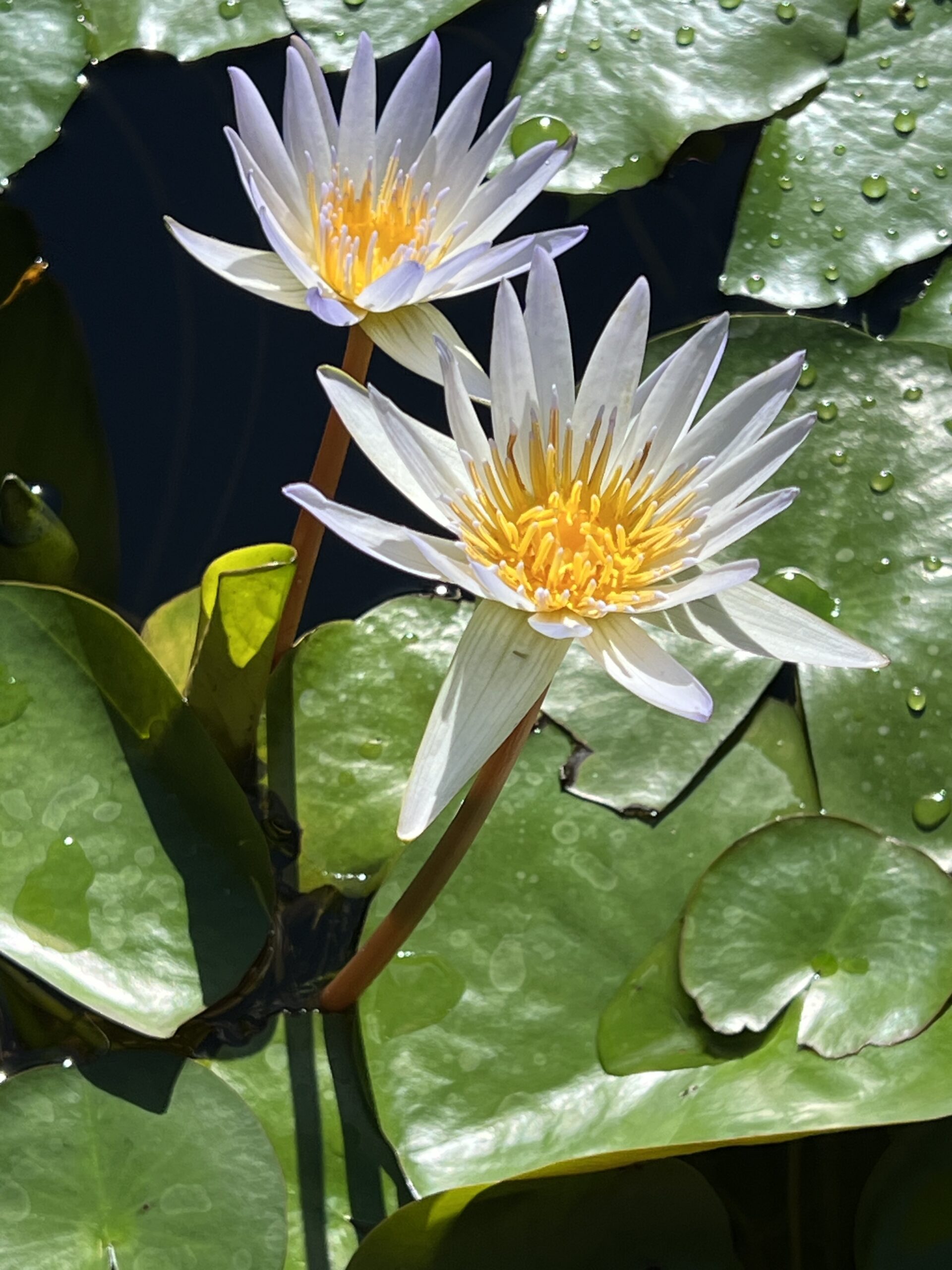June 10, 2024
SMALL CHANGE
“When we draw a line down the center of a page, we know who we are if we’re on the right side and who we are if we’re on the left side. But we don’t know who we are when we don’t put ourselves on either side. Then we just don’t know what to do. We just don’t know. We have no reference point, no hand to hold. At that point we can either freak out or settle in.” (Pema Chödrön Six Kinds of Loneliness)
One thing about reaching an unprecedented situation or life stage is that, by virtue of its being unprecedented, one is at a loss for signposts or reference points from which to get one’s bearings in this unfamiliar territory. As Pema Chödrön well knows, this lack of signposts or certainty can be deeply disorienting. And frightening. I don’t like being disoriented any more than the next person, provided they’re anything like me and don’t go in for change in a big way, but I am seeing a path through this disorientation that offers encouragement and even novelty versus the urge to crawl under a rock until it blows over. The latter might’ve been an option if I thought this aging thing would blow over, but I’m afraid the only way that is apt to happen is one that I’m not too keen to contemplate.
So, on to my novel new idea about embracing versus avoiding change, aging, uncertainty, unpredictability, general unpleasantness etc etc. I’ve decided to let curiosity be my approach, or guide. I suggested to myself that I could start by trying one new thing a day. Not sky-diving or rock climbing, but any small thing that takes me out of my routine. For instance, the other day I wandered down aisles in the grocery store that normally never interest me. I’m an around-the-edges sort of shopper, the produce section, cheese and deli display, the flowers, and occasional chips or dairy forays. While looking for puff pastry from which to make pizza to use up the pesto sauce I made the other day (a first), I spied frozen butter chicken and other Indian dishes that I’ve become more interested in since attending a Sikh wedding, and reading a trilogy of Alka Joshi’s books on the lives of some feisty Indian women. Even this recent reading marks a departure from my usual authors, folks like Alexander McCall Smith or Amor Towles, Elin Hilderbrand and several nonfiction writers . My “curiosity move” of that day was to take home the frozen butter chicken with the intention of finding a recipe for jasmine rice, such as we enjoyed at the wedding, with the addition of a few more green things to complement all the red sauce.
Today’s departure from the norm was learning how to let myself into our condo building using my phone instead of my keys. It worked very well, but the feedback screeching caused by holding my phone too close to the intercom compels me to keep using my keys in future. At least I now know how to remotely admit visitors to our building!
The interesting discovery is how the least shift in my perspective or routine tends to give rise to more and more discoveries; just by doing things that I’d put off indefinitely, like buying better fins to aid me in the ocean swims that are infinitely more rewarding than endless laps of a too-crowded or always-booked pool, net gained energy. (Today I was actually daring to go in the ocean alone, so out of synch was my timing with my usual buddies, but luckily I met up with three other swimmers who, after our swim, even offered to share the lane they’d booked to finish up their distance.
In the process I made two new swimming acquaintances and learned about an event taking place in Kelowna this summer. It would take a great leap of courage for me to swim across Lake Okanagan, (no doubt at its narrowest point) but it’s something to which I will now give careful consideration, versus my tendency to summarily dismiss it as unrealistic: too much training, too many logistics, or too great a leap of faith. That I would even contemplate such a commitment has me wondering what has become of me, and in what other ways am I apt to roam beyond my comfort zone. For leaving my comfort zone is the only way out of what Pema Chödrön calls “samsara”.
“We hear a lot about the pain of samsara, and we also hear about liberation. But we don’t hear much about how painful it is to go from being completely stuck to becoming unstuck. The process of becoming unstuck requires tremendous bravery, because basically we are completely changing our way of perceiving reality, like changing our DNA. We are undoing a pattern that is not just our pattern. It’s the human pattern: we project onto the world a zillion possibilities of attaining resolution. We can have whiter teeth, a weed-free lawn, a strife-free life, a world without embarrassment. We can live happily every after. This pattern keeps us dissatisfied and causes us a lot of suffering.”
Making small consistent changes is one way to overcome the attachment to creature comforts (otherwise defined as the devil I know) and limiting beliefs (or fear of the unknown). Besides, who knows what I’ll find on the rest of those mystery grocery aisles?
